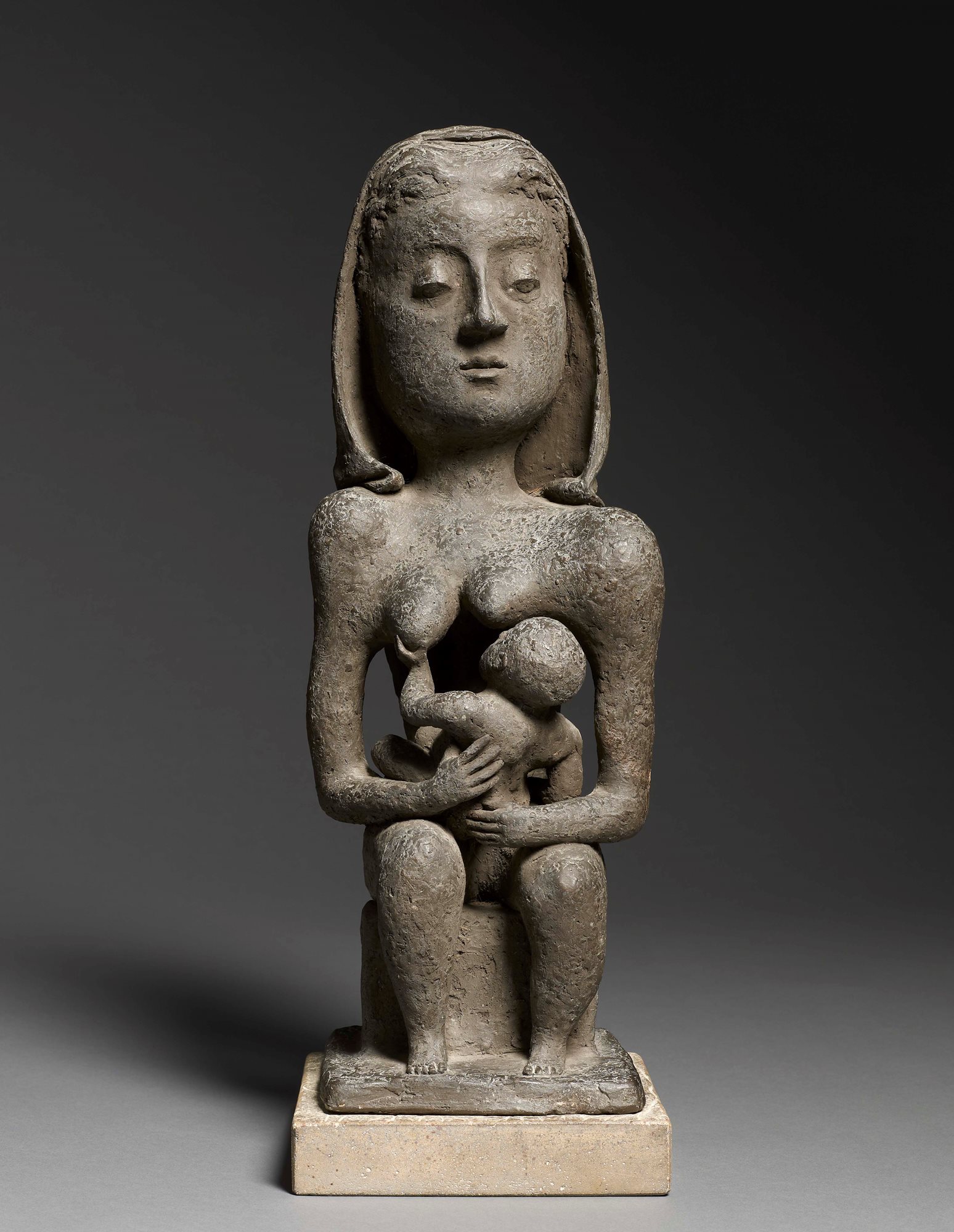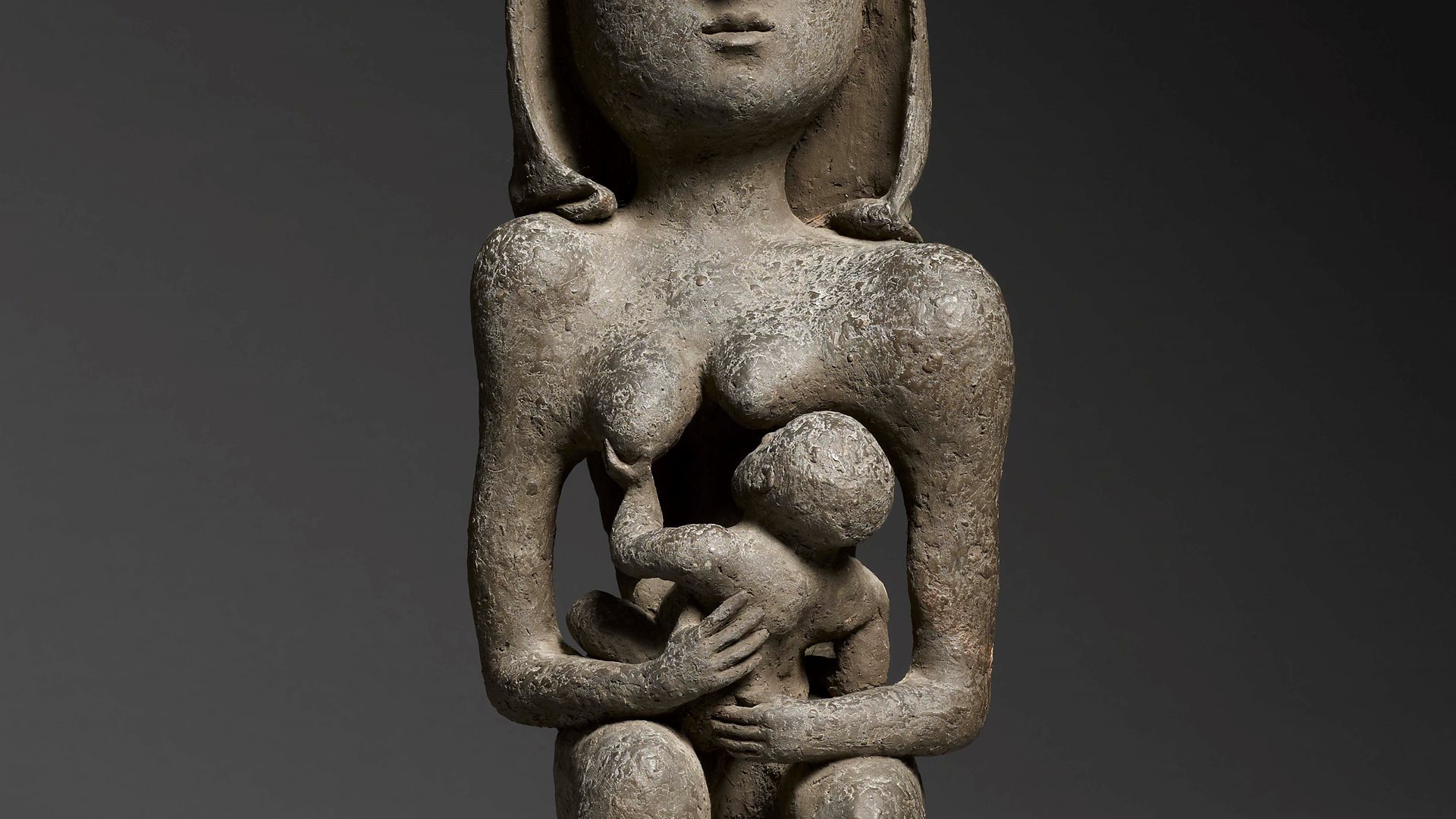

Provenance:
- Acquired directly from the artist in the 1950s
- By descent until 2013
- Acquired directly from the artist in the 1950s
- By descent until 2013
Published:
- D. Ferran and V. Holman, The Sculpture of F.E McWilliam, Lund Humphries, Surrey, 2012, p. 96, cat. n. 50 (illus.)
- D. Ferran and V. Holman, The Sculpture of F.E McWilliam, Lund Humphries, Surrey, 2012, p. 96, cat. n. 50 (illus.)
McWilliam studied painting and drawing at the Belfast College of Art in Northern Ireland (1928) and at the Slade School of Fine Art in London (1928–31) before moving to Paris for a year. His first sculptures, which he carved using Buckinghamshire cherry wood, were biomorphic forms influenced by African sculpture and the abstract work of Jean Arp and Constantin Brancusi. In 1936 McWilliam visited the International Surrealist Exhibition in London and his work was strongly influenced by the movement. He was a friend and contemporary of Henry Moore, whose work he admired.
After serving in the Royal Air Force in India during World War II, McWilliam taught drawing and sculpture in Bengal (1944–46), as well as in London at the Chelsea School of Art (1946–47) and at the Slade (1947–66). His work was seldom overtly political, but in 1972–73 he made a series of powerful bronzes, Women of Belfast, in response to the bombing of the Abercorn restaurant in Belfast. He was elected to the Royal Academy in 1959 and was made Commander of the Order of the British Empire in 1966. McWilliam was the subject of a retrospective exhibition held at the Tate Gallery in London in 1989. Celebrating his work, the F. E. McWilliam Gallery and Studio was opened in Banbridge, near Belfast, in 1992.
After serving in the Royal Air Force in India during World War II, McWilliam taught drawing and sculpture in Bengal (1944–46), as well as in London at the Chelsea School of Art (1946–47) and at the Slade (1947–66). His work was seldom overtly political, but in 1972–73 he made a series of powerful bronzes, Women of Belfast, in response to the bombing of the Abercorn restaurant in Belfast. He was elected to the Royal Academy in 1959 and was made Commander of the Order of the British Empire in 1966. McWilliam was the subject of a retrospective exhibition held at the Tate Gallery in London in 1989. Celebrating his work, the F. E. McWilliam Gallery and Studio was opened in Banbridge, near Belfast, in 1992.